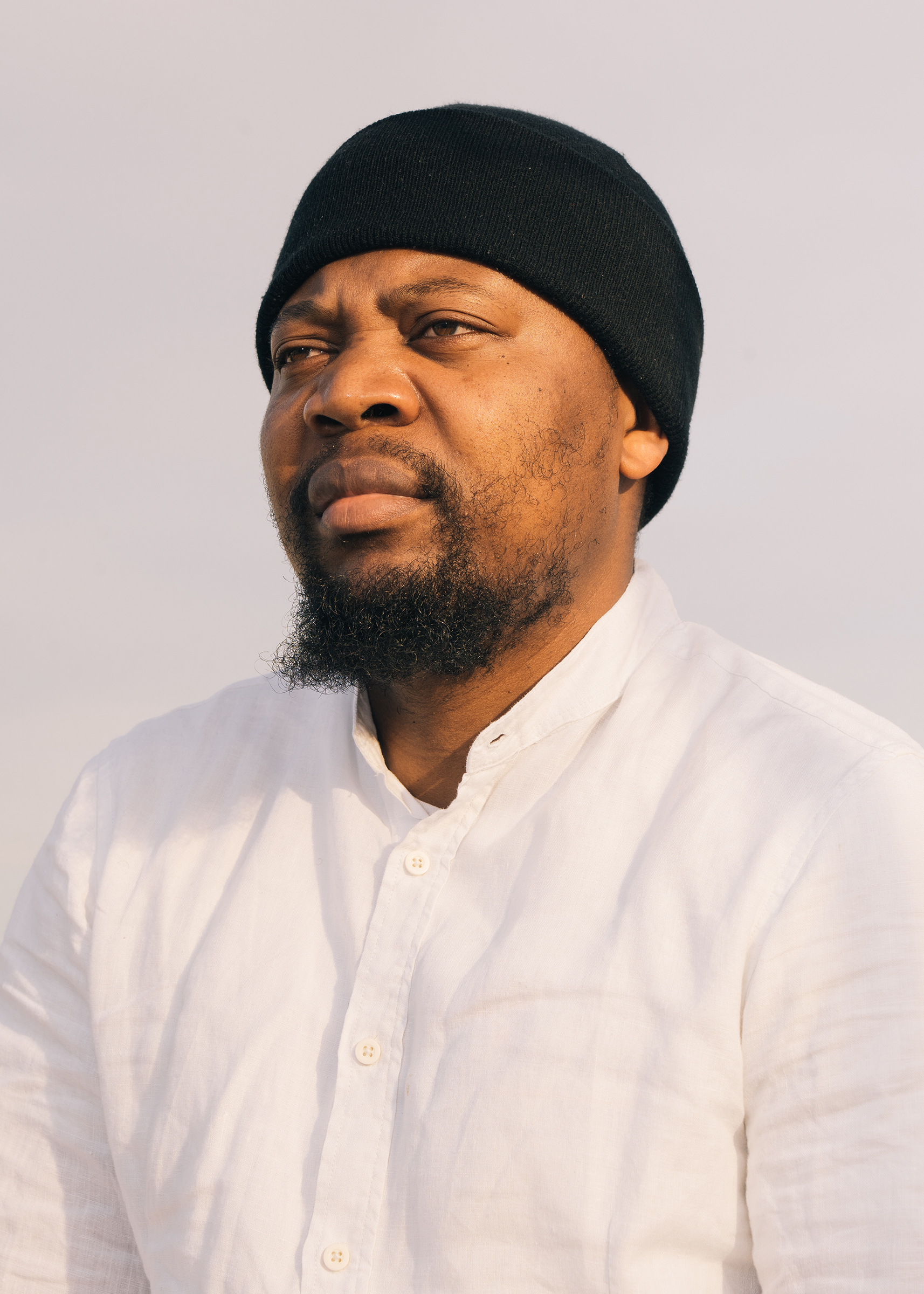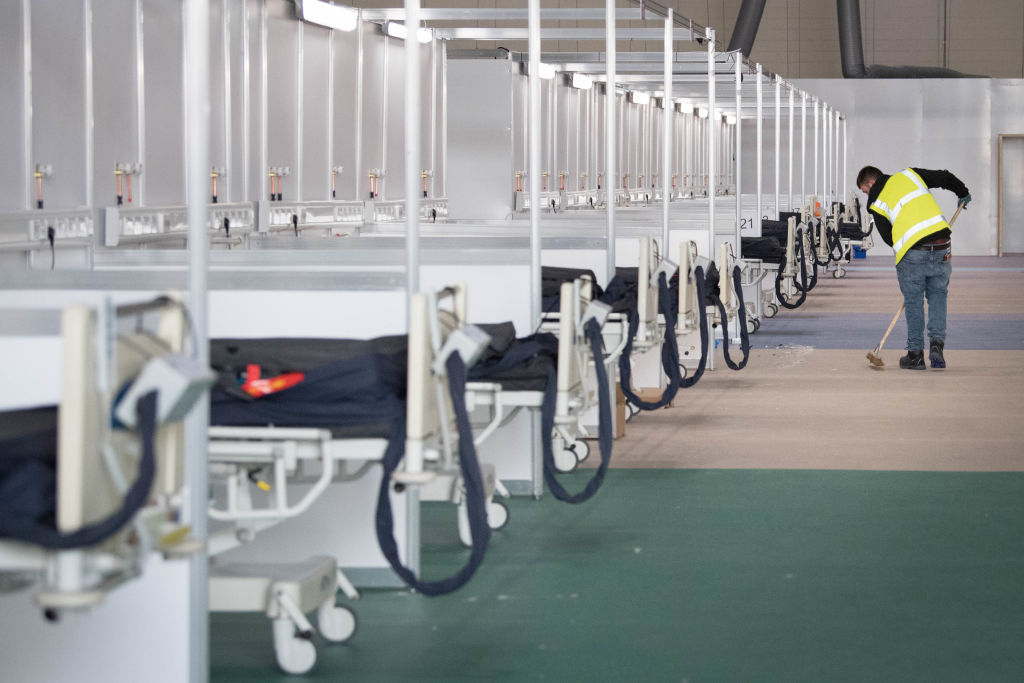
Confinement does not trouble Tamon Mark Andang Asongwe too much. The coronavirus lockdown is mostly keeping him inside his home in Athens, but it’s not the first time his liberty has been under threat. There were three stretches in jail for political activism back home in Cameroon; a spell in a migrant detention cell in Turkey; a terrifying two hours at sea in an overloaded boat sailing to Greece in 2018, and then six months in a refugee camp on Lesbos island.
So despite the hardships that the COVID-19 pandemic has brought, Asongwe is upbeat: he has a job to do and a vital role to play in the society that welcomed him. Five days a week, Asongwe travels to an elderly care facility where he dons a mask, gloves and other protective gear and does everything he can to keep the residents safe and their spirits high.
“I am so grateful to the Greek government—they have given me a chance to live a normal life,” says the 31-year-old nurse, speaking from his Athens home. “Taking care of the Greek people is a way to show my appreciation.”
Around the world, thousands of people from refugee backgrounds with experience in healthcare could prove a vital resource in the battle to treat COVID-19 patients. Countries including Ireland, Germany, Australia and France are examining that potential, and the response from refugee communities has been huge. Hundreds of people have come forward in Britain, Germany, and other countries. But medical professions are some of the most regulated in the world, and experts say innovative solutions are needed to overcome the logistical challenge of verifying people’s qualifications and deploying their expertise.
“In many countries health systems are either overwhelmed or at the point of being overwhelmed,” says Sjur Bergan, head of education for the Council of Europe, an intergovernmental human rights organization. “We need to think anew.”
Asongwe qualified as a nurse in 2015 and spent years working in Cameroonian hospitals, aiding the recovery of malaria and typhoid patients and working in surgical wards. But his involvement with a separatist movement in the southwest landed him in jail three times, and in 2018 he fled his home. When he arrived on the Greek islands, he worried about the parts of his life he may be leaving behind.
“Am I throwing away my whole career?” he wondered. Nursing had never just been a job for Asongwe: “It is part of who I am. Nursing is a vocation—it is a way of life.”
As he awaited his asylum decision, Asongwe took on seasonal housekeeping jobs at tourist resorts. Rules differ across the European Union, with some countries denying asylum-seekers the right to work, but Greece allows employment as long as certain conditions are met. Then in January 2019, he heard about the European Qualifications Passport for Refugees (EQPR), a scheme launched by the Council of Europe in 2017. Many professionals from outside the E.U. struggle to get their qualifications recognized, and people seeking asylum face additional challenges as they may have been forced to flee without their documentation. Under the scheme, an applicant submits whatever documentation they have, then has an in-depth interview with two experts from their field. While the EQPR is not the equivalent of qualification, it can be a first step in the process of getting recognition, in medicine and other professions.
For Asongwe, it was enough to get him a job as an Assistant Nurse at an elderly care facility in Athens, and he started work in November. There have been no confirmed COVID-19 cases at his care home so far, but isolation is taking its toll. Asongwe stresses how important it is to look after both the physical and mental health of the residents. He laughs as he recounts helping them master new technologies, and how their faces light up when they connect with their loved ones.
“I love it so much, I have a wonderful time,” he says. “For me, working right now, it is a huge relief. I make a lot more of my time, I make a lot more of my education.”
Bergan says giving people from refugee backgrounds the opportunity to work is a win-win situation. “It means they can be of help to their host societies, they feel useful, they feel motivated and if and when they return to their home societies, they return with added qualifications and experiences so they can help rebuild the country.”
But the EQPR scheme is still limited. So far out of the 454 successful applicants, 46 have health-related backgrounds. Bergan says they want to increase the numbers of interviews with health professionals to help with the crisis, but there are logistical barriers including sourcing experts to conduct more interviews and transitioning from face-to-face meetings to video calls.
E.U. governments are also struggling with the practicalities. Frédérique Pharaboz, the education adviser for refugee integration at France’s Ministry of Interior, says they initially responded to the coronavirus outbreak by re-activating a central health services reserve corps which was set up in 2007 to tackle the H5N1 crisis. It has received more than 19,000 new applicants, including people from refugee backgrounds, but the website crashed. The small team in Paris also struggled to check the qualifications of all the applicants, and so far, only 719 reservists have been mobilized.
So seven regions in March introduced their own Renfort Covid (Covid Reinforcement) scheme in which applicants are paired directly with hospitals and other medical facilities who do the background checks themselves. So far, 5,500 people have been deployed in these regions. “In times of crisis, you need flexibility,” says Pharaboz.
She also sees an opportunity to change perceptions about refugees.
“We need to show that being a refugee is not an identity,” she says. “These people are doctors, nurses, they have kids, they have normal lives.
“Because of the far right in France, people think [refugees] are going to be on benefits all their lives and a burden on our society. If we show that far from being a burden, they help relieve the burden of the coronavirus, then that is very powerful.”
That message could also have a big impact in Germany, which saw nearly one million refugees arrive in 2015, sparking a political backlash. Now the medical boards in many German regions have appealed to the refugee community for help. Those regions include Saxony, the heartland for the anti-immigration Alternative für Deutschland party. At the end of March, 300 volunteers had responded to the appeal.

But in some countries, the COVID-19 crisis has compounded existing frustrations. Ahmad Al-Qassab, 44, is an orthopedic surgeon with 16 years’ experience in Iraq. He arrived in the United Kingdom in 2015 and has spent the last five years living off benefits in social housing as he tries to pass the stringent language, technical and theoretical exams needed to re-qualify as a doctor in the U.K. He has one exam left, but that has been postponed because of the coronavirus pandemic.
“We want to sacrifice, we are ready, we have the knowledge, we have the experience, and we have the courage,” he says. “If you give us hope to work, we will show the world that we are efficient.”
The charity RefuAid has identified 541 healthcare professionals, including 230 doctors, in the U.K. who are working towards requalification and could help with the coronavirus response. Another advocacy organization called Medical Professionals Seeking Registration in the UK sent a letter at the end of March to the General Medical Council (GMC), urging them to grant people like Al-Qassab temporary registration so they could work under supervision.
“Look at us as a part of the country, not as a part of another country,” says the group’s founder, Hiba Al Zamzamy. “Give us the right to be part of the crisis.”
Una Lane, Director for Registration and Revalidation at the GMC, told TIME that they were “enormously grateful” for the offers of help, but “we must ensure every doctor has the necessary skills and knowledge to practise safely in the U.K.” She pointed out that there were opportunities to work with the National Health Service as a Medical Support Worker, which allows doctors with foreign qualifications who have passed their language exam to do limited clinical tasks.
Al-Qassab applied for that role three weeks ago but has had no response. So instead of using his skills, he sits at home watching the news, wondering what his future holds.
“You can’t imagine how frustrated I am,” he says. “I spent all my life studying medicine. It’s the only thing I am good at.”
More Must-Reads from TIME
- Cybersecurity Experts Are Sounding the Alarm on DOGE
- Meet the 2025 Women of the Year
- The Harsh Truth About Disability Inclusion
- Why Do More Young Adults Have Cancer?
- Colman Domingo Leads With Radical Love
- How to Get Better at Doing Things Alone
- Michelle Zauner Stares Down the Darkness
Contact us at letters@time.com